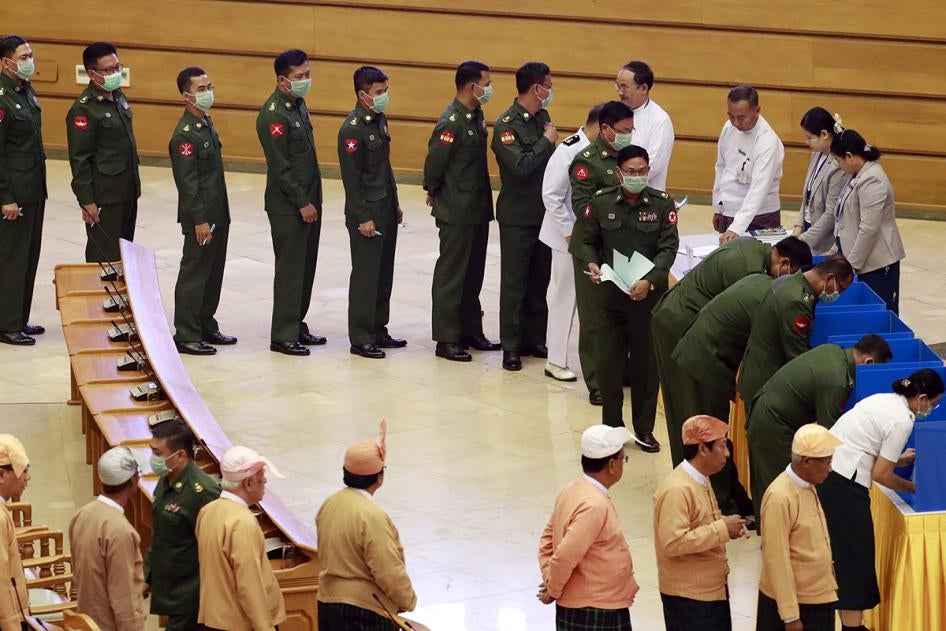On Tuesday, Myanmar’s parliament rejected efforts by Aung San Suu Kyi’s political party to reform the country’s deeply undemocratic 2008 Constitution. It marked the first day of voting on a slew of amendments to the military-drafted charter that will continue through March 20, drawing to a close the push by the National League for Democracy (NLD) to realize one of its core campaign promises from five years ago.
The NLD’s proposed amendments sought to curb the political power of the military, known as the Tatmadaw, including cutting its fixed allotment of seats in parliament. But the effort was stymied from the start by a calculated Catch-22: the constitution requires more than 75 percent of all members of parliament to pass a constitutional amendment, while granting the military 25 percent of seats – an effective veto.
The proposals have been predictably denounced by military-aligned lawmakers, who maintain the armed forces’ political control is necessary and submitted their own amendments to be voted on this week. “We are still overcoming a lot of hardships,” said Commander-in-Chief Sr. Gen. Min Aung Hlaing in defense of the military’s parliamentary quota. “The Tatmadaw has therefore taken those seats as a measure to ensure national stability.”
The military’s autonomy from civilian oversight has throttled the country’s flailing democratic transition while fostering cycles of abuse and impunity. As long as the Tatmadaw remains outside civilian control, Myanmar will be unable to achieve genuine respect for human rights and democratic rule.
But the NLD’s push to amend the constitution rings hollow following four years of unwillingness to tackle attainable reforms. Despite its parliamentary majority, Suu Kyi’s party has failed to amend or repeal repressive laws that criminalize speech and peaceful assembly. Instead, it has intensified attacks on free expression, strengthening restrictive legislation and prosecuting growing numbers of journalists and activists.
And while the NLD and military have clashed over their opposing constitutional proposals, on many other stages they have stood hand in hand to form what has been called an “illiberal democracy” – concealing and defending security force abuses, imprisoning critics, promoting nationalism and blunting ethnic minority participation, and denying access to justice for victims of the military’s crimes.
With general elections slated for later this year, the amendments are seen by many as an NLD campaign strategy to make good on its 2015 promises. But the party’s political maneuvering could be sidestepped by making genuine progress on democratic reforms. The window to undertake them may be limited, but it exists – so long as there is the political will to take on the fight.







